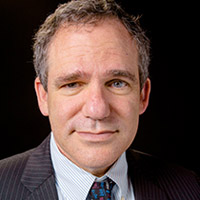Passion Investments: Why High-Net-Worth Individuals are Turning to Luxury Collecting
[vc_row][vc_column][vc_column_text]by Alan L. Olsen, CPA, MBA (Tax)
Mananging Partner
Greenstein, Rogoff, Olsen & Co.
Posted: 3/1/11
In times of economic uncertainty, bad news is good news for collectors and sellers. This uncertainty drives capital out of the stock market but at the same time, causes investments like art, wine and fine jewelry (among others) to enter the market. When typical investments are down, people sell their collectibles and when the stock market seems like a relative loser, art, wine, and fine jewelry can be great investments.
Record low bond yields and market volatility are causing investors to look elsewhere for investment opportunities. Tangible investments which yield a decent long-term return and provide enjoyment are becoming increasingly popular. These “passion investments” are typically rare, luxury items that the investor is passionate about owning and enjoying – from fine art to yachts.
The Capgemini and Merrill Lynch World Wealth Report 2010 found that high-net-worth individuals are returning to passion investment as “investor-collectors”, seeking out those items that are perceived to have tangible long-term value. According to the report, the two categories found to be the most attractive were art and “other collectibles” such as coins, antiques or wines.
Aside from the enjoyment of securing the ultra rare collectible piece, these long-term investments are proving to be a good way to diversify a portfolio:
During the first half of 2010 the Mei Moses All Art Index which tracks auction prices gained 13.5% compared with a 6.5% fall in the S&P500 index during the same period.
The Liv-ex Fine Wine Investables index, which tracks the price of fine wines from 24 chateaux in Bordeaux, was up 27.2% from the beginning of 2010 to the end of August.
In the first quarter of 2010, yacht brokerages closed nearly 30% more sales than a year earlier, with a 70% increase in valuation, according to a survey by UK broker Yachtworld.com.
As long as the financial environment remains uncertain, demand for tangible assets is likely to increase.
Tax Implications
Collectibles are taxed in two different tax brackets:
Short-Term Collectible Capital Gains Tax Rates: Collectibles held less than one year are taxed at personal income tax rates, just like short-term capital gains taxes on stocks or bonds.
Long-Term Collectible Capital Gains Tax Rates: Collectibles held one year or longer are taxed at 28%.
The IRS defines collectibles as:
• Stamps • Fine Art
• Coins • Precious Metals (Including Coins)
• Alcoholic Beverages (Like Fine Wine) • Precious Gems
• Rare Rugs • Antiques
For additional information please see our article Calculating Capital Gains Tax on the Sale of a Collectible at www.GROCO.com or contact Alan L. Olsen, CPA, MBA (Tax), Managing Partner of Bay Area CPA firm Greenstein, Rogoff, Olsen & Co., LLP at 510-797-8661.[/vc_column_text][/vc_column][/vc_row]
Gemlust | Rénee Kubryk
About Rénee Kubryk Rénee Kubryk has always had a passion for Gems. At a young age Rénee found herself working at a jewelry store owned by her parents. She received her degree in nursing from City University of New York City College and later a Master’s in Human Resources & Organizational Development from the…
Academic Deep Learning | Dr. Karen Walker
Transcript, Academic Deep Learning | Dr. Karen Walker Alan Welcome back. I’m here today with Dr. Karen Murray Walker. She’s the author of the book, The Deep Learning academic success planner. And we’re on the campus of Southern Virginia University. Dr. Walker, welcome to the show. Thank you. So I’d like your background, you know…
Jenny Oaks Baker- Developing Talents
About Jenny Oaks Baker America’s Violinist, Jenny Oaks Baker is a Grammy Nominated, Billboard No. 1 performer and recording artist. She received her Master of Music degree from the renowned Juilliard School in New York City and her Bachelor’s Degree in violin performance from the Curtis Institute of Music in Philadelphia. She has performed as…
How the Internet Became Commercial: Patterns in the Deployment of Technology | Shane Greenstein
About Shane Greenstein Shane Greenstein is a Professor of Business Administration at the Harvard School of Business and is the MBA Class of 1957 Professor of Business Administration. Professor Greenstein is also co-director of the program on the economics of digitization at The National Bureau of Economic Research. Professor Greenstein is the author of…




